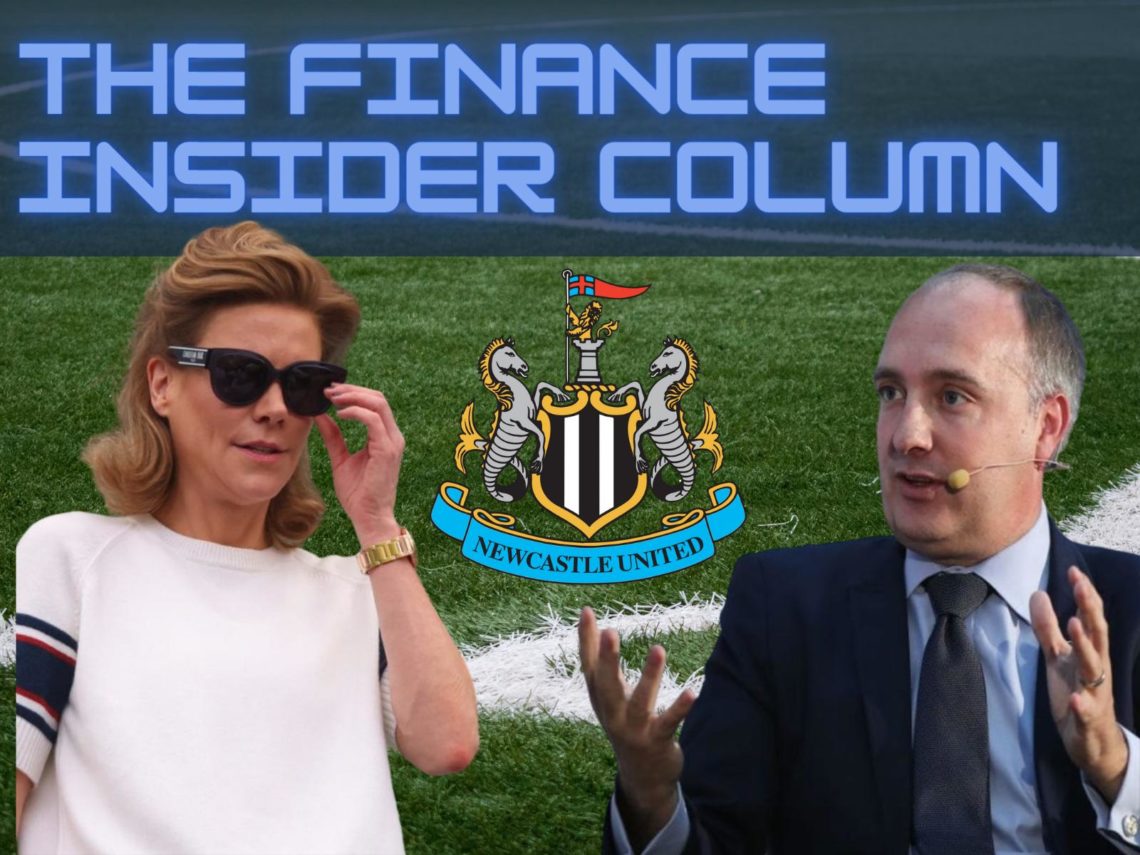
Finance Insider Column: Newcastle United takeover plot revealed as Man City blueprint matched
If you want to go fast, go alone. If you want to go far, go together. That appears to be the mantra of Newcastle United and innumerable other clubs flirting with the multi-club ownership model.
The template, pioneered by Red Bull and Man City, is in vogue not just among Europe’s established elite, but also those scheming to smash the glass ceiling.
Southampton, Aston Villa, Crystal Palace and Bournemouth are already part of wider networks, while the owners of Chelsea and now Newcastle have publicly expressed their interest.

St James’ Park director Amanda Staveley told the Financial Times Business of Football Summit last week that Newcastle are now actively exploring multi-club ownership.
The benefits are clear and numerous – player development, commercial expansion and diversifying risk are among the perks most often cited by those who have found success in owning multiple clubs.
It is not surprising therefore that Newcastle, whose ambition is as endless as their cash reserves, are looking to stretch their tentacles well beyond Tyneside.
It is understood that clubs in Portugal, the Netherlands, Belgium and Turkey are likely to be potential targets.
Each of those countries’ top leagues are classified as Band 2 competitions by the FA, which means those playing there are – besides the traditional ‘Big Five’ leagues – the most favoured under the post-Brexit points system.
However, Football Insider has been told that there is optimism within the Premier League that the FA can be persuaded to relax the points system, which many clubs blame for inflation in the transfer market.

Significantly, sources have explained that the Home Office will let the Premier League and the FA reach an agreement on the UK’s entry requirements for foreign players independently rather than intervening themselves.
Exactly what that system might look like is not known, but it is conceivable that such a development could remove the urgency with which Newcastle, among other clubs, are looking to launch multi-club projects.
Stavely has, however, also pointed to brand-building opportunities when defining Newcastle’s multi-club motives.
This has been a signficant element of both City Football Group and the Red Bull network’s approach. It also appears to be what Aston Villa owners Wes Edens and Nassef Sawiris are going for with their V Sports venture.
Red Bull have unsubtly splashed their branding all over their portfolio of clubs. City have bought clubs who play in sky blue. V Sports now own stakes in Villa and Portuguese side Vitoria, while a Vegas-based franchise is also on the cards.
They might seem superficial details, but they vicariously extend the brands of the multi-club networks in question. And that is, with no exaggeration, Newcastle’s A1 priority under the Saudi Public Investment Fund.
Without growing commercial revenue, the club will be unable to unlock the astonishing wealth of their owners under the terms of Financial Fair Play.
It is telling that a forthcoming Amazon documentary on the club will focus on Staveley’s mission to catapult Newcastle to new commercial heights, not on Eddie Howe’s quest for Champions League football.
Greater worldwide reach will help Newcastle justify more lucrative deals in the eyes of the Premier League’s Fair Market Value committee, the body set up to stop club owners from artificially inflating their sponsorship income to bypass FFP.

There are clear signs that Newcastle are thinking globally. Our analysis shows that four of the seven commercial deals signed since the takeover have been with parties linked to PIF, with a particular focus on the Saudi market.
It is also understood that a sleeve sponsorship deal with the Botswana tourist board is a possibility, while it would be no surprise to see CEO Darren Eeales, former president of Atlanta United, target the US in the coming years.
Diversifying risk is not as pressing an issue for PIF. With £514billion worth of assets under your control, PIF’s portfolio could barely be more diverse.
In its annual European Club Footballing Landscape report, Uefa warned that multi-club ownership is distorting the transfer market and undermining the game’s integrity, but legal sources have told Football Insider that anti-competition law will preclude any major curbs on the multi-club model.
This site has also been told that the Premier League are unlikely to re-examine Newcastle’s ownership structure despite the emergence of documents that contradict PIF’s claims that there would be no state involvement at St James’ Park.
It appears, then, that there are very few impediments to the League Cup finalists ambitions to launch a multi-club network.

Another option is to buy into an existing multi-club structure. Two groups with numerous clubs under their control are MSD Sports Capital and 777 Partners, both of whom were recently in talks to acquire a minority stake in Everton.
Sources have told Football Insider that, as has been reported elsewhere, 777 Partners are exploring partnerships with Premier League teams – a possible avenue for Newcastle?
In other news, Newcastle United well placed to sign Southampton star James Ward-Prowse with fire sale on the cards.
